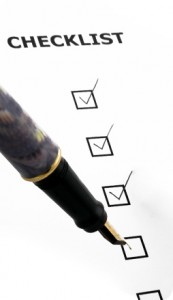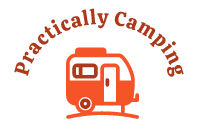 Here we are at the second article in our series on frugal camping. So we’ve bought our firewood ahead of time and we’re saving big money on that. What’s next?
Here we are at the second article in our series on frugal camping. So we’ve bought our firewood ahead of time and we’re saving big money on that. What’s next?
This next tip isn’t as definitive on the math as the last one, but it can save you a small fortune by simply being prepared. You can’t be prepared for every situation, but you can certainly try.
Tip 2 – Check your equipment and double check your lists before heading out.
I can hear your thoughts saying “Wait a minute! How does checking my equipment and double checking my list save money?”
Ok, maybe you didn’t say that. I should give you more credit. However, if you didn’t know, unexpected costs are almost always more expensive. Therefore, cutting down on unexpected costs will cut down the amount of money leaving your wallet.
 The easiest way to do this is to make a list of all the things you need for camping and double check that list before you go. This will greatly reduce the likelihood that you’ll need to make a trip to the store for something you forgot.
The easiest way to do this is to make a list of all the things you need for camping and double check that list before you go. This will greatly reduce the likelihood that you’ll need to make a trip to the store for something you forgot.
If you’d like to see an example of a list, check out: The Must Have List Every Tent Camper Needs
If you’ve camped in remote areas before, then you already know that the cost of goods and services are usually higher. There are some good economic reasons for this. It can cost more to ship products to remote areas, which often drives up the retail value.
There are also some not-so-good reasons for the prices skyrocketing… The business owners know that you will pay whatever they ask because you won’t be able to get the product or service you need without driving for hours. It seems a little unscrupulous, but it makes good business sense if you are the one raking in the dough.
Then again, if you are in a very remote area, you may not be able to purchase the product or service you need at all.
 For the second part of this tip, remember to always check your camping equipment and vehicles before you go. If you’re a handy man, you likely won’t have your shop with you at the campground.
For the second part of this tip, remember to always check your camping equipment and vehicles before you go. If you’re a handy man, you likely won’t have your shop with you at the campground.
So when something breaks, you will need to buy tools and parts to fix it. This will usually be less costly than replacing an entire item, but could end up being more depending on the tools or parts required.
If you’re not a handy man, then you’ll definitely want to test your gear, leaving enough time to get it repaired at a cost that is acceptable to you.
Check out the next tip in the series: The benefits of loyalty and travel membership programs

You must log in to post a comment.